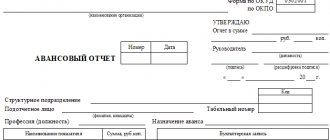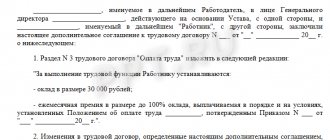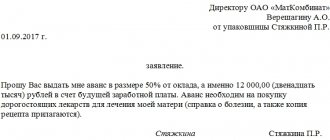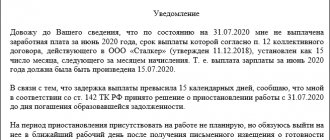If the employer did not pay wages on the day of dismissal of the employee (regardless of the initiator of dismissal - the employee himself or the employer), then a separate claim for recovery of wages may be filed with the appropriate court.
In addition, in such a case, compensation for moral damage and other required payments can be recovered from the employer. How to properly file a claim for the recovery of wages, as well as to which authority and within what time frame it must be filed, is described in detail below in the article.
When should you write a statement about non-payment of compensation upon dismissal?
To the resigning employee, the employer, without any special reminders or requirements, in accordance with Part 4 of Art. 84.1 of the Labor Code of the Russian Federation is obliged on the day of termination of the employment contract:
- issue a work book or provide information about work activity (Article 66.1 of the Labor Code of the Russian Federation);
- make a full payment - give the employee all amounts due upon dismissal (Article 140 of the Labor Code of the Russian Federation).
If on the day of dismissal the employee was unable to receive the specified documents and money, then Art. 140 of the Labor Code of the Russian Federation orders the employer to pay the appropriate amounts and issue all the necessary papers no later than the next day after the dismissed employee submits a request for payment.
If disputes arise about the amount of amounts due to the employee upon dismissal, the employer is obliged to do so as specified in Art. 140 of the Labor Code of the Russian Federation, the deadline to pay the amount not disputed by him.
Thus, an application from the employee will be required in the case when he did not receive the required amount on the day of dismissal. Sometimes several applications will be required to different authorities (trade union body, labor dispute commission, State Labor Inspectorate, prosecutor's office or court).
In any case, the first application should be submitted to the employer. Find out how to do this in the next section.
Reasons why you can file a claim for payment
A claim for recovery of wages is drawn up in accordance with Art.
131 Code of Civil Procedure of the Russian Federation. Failure to pay wages and other required payments to a dismissed employee must be confirmed by relevant documents. According to Art. 136 of the Labor Code of the Russian Federation, wages are paid every half of the month. If an employee resigns, the final payment is made on his last day of work.
The reasons why you can file a lawsuit to recover wages are the following:
- The employer did not pay the dismissed employee (plaintiff) wages on the day of dismissal or paid it in full, without taking into account the regional coefficient (Article 140 of the Labor Code of the Russian Federation). As evidence confirming these circumstances of the case, the court is presented with pay slips, a note of calculation, etc.
- The employer did not pay the dismissed employee severance pay , if it is due - in case of staff reduction, liquidation of a company or individual entrepreneur, by agreement of the parties (what payments are due upon dismissal by agreement of the parties?).
- The employer did not pay compensation for unused vacation to the dismissed employee. As evidence in the case, you can present explanations from company employees or other persons confirming the fact that the dismissed employee did not use vacation in full. Also confirmed will be the lack of documentation about the use of all vacation days by the dismissed employee. Find out how to apply for leave with compensation for unused vacation and how to calculate the amount if the employee worked for 11 months or less.
An employee can also make monetary claims against an employer in the following cases:
- illegal dismissal of an employee - during forced absence, the employer must pay wages to the former employee;
- delay in issuing a work book - the employee needs to be compensated for the time during which he could not get a new job (Article 234 of the Labor Code of the Russian Federation);
- if during the period of work the dismissed employee received a disability group for a corresponding occupational disease, and the amount of lost earnings exceeds the amount of the corresponding insurance payment under social insurance.
Only those dismissed workers who were officially employed can file a lawsuit to recover wages.
Those who worked without an employment contract will first have to prove to the court the existence of an actual employment relationship.
Application to the employer
Start with a peaceful resolution of the problem of non-payment of compensation upon dismissal. To do this, write a statement to your employer outlining the essence of your request. The application form is free:
The application can be entitled “Demand” or “Claim” so that the employer clearly responds to this document - as his responsibility under Art. 140 Labor Code of the Russian Federation.
It is better to fill out such an application/demand in two copies. Give one copy to your employer. The second one - keep it for yourself after the employer puts a stamp of receipt on it indicating the date and signature.
If a peaceful solution to the problem of paying dismissal amounts does not help, and the employer does not respond to your demands, you can directly go to court. In addition, you can try to influence the employer through a trade union body or a labor dispute commission. But not every modern company has them.
If, nevertheless, you do not want to go to court and are inclined not only to receive the money owed, but also to punish the negligent employer with unscheduled inspections and fines, you will have to write an application to other authorities. According to the law, such authorities are the labor inspectorate, the prosecutor's office, the investigative committee, and the police.
Application to a trade union or labor dispute commission
Protecting the interests of workers is an essential function of the trade union body at an enterprise. It is the trade union that has the right to represent the interests of the employee in his labor dispute with the employer (Part 2 of Article 29 of the Labor Code of the Russian Federation, Article 14 of the Law of January 12, 1996 No. 10-FZ “On Trade Unions...”).
An application to the trade union body of your company regarding non-payment of compensation upon dismissal is drawn up in any form. But unlike the previously considered application to the employer, this application should describe in detail the essence of the problem and describe/attach evidence to establish a violation of the employee’s rights.
Here's what such a statement might look like:
Sample application for non-payment of compensation upon dismissal, sent to the trade union
A statement of similar content can be sent to the labor dispute commission. Both the employee himself and, at his request, the trade union body have the right to do this (Article 399 of the Labor Code of the Russian Federation).
This is what a sample application to a labor dispute commission might look like:
Sample application to the labor dispute commission
You must contact the labor dispute commission to resolve a labor dispute within 3 months from the day the employee learned or should have learned about a violation of his right (Article 386 of the Labor Code of the Russian Federation).
Application to the labor inspectorate
The State Labor Inspectorate (SIT) is authorized to make a decision on the forced execution of the employer’s obligation to pay accrued but not paid wages on time, as well as other payments due to the employee.
The decision of the State Labor Inspectorate is an official document, and in the event of non-compliance by the employer and the expiration of the appeal period, it is sent by the labor inspectorate for execution to the bailiff service (Article 360.1 of the Labor Code of the Russian Federation, paragraph 119.1 of the Administrative Regulations, approved by Order of Rostrud dated June 13, 2019 No. 160, Art. 6.1 and 6.5 of the Law of July 21, 1997 No. 118-FZ “On Compulsory Enforcement Bodies of the Russian Federation.”)
The application to the labor inspectorate is written:
- In free form - for a written application. Indicate in it the name of the labor inspectorate where you are applying, your details, place of work, describe the circumstances of the employer’s violation of your labor rights, sign and date.
- According to a special format - when submitting an application through the website Onlineinspektsiya.rf.
To submit an application through the Onlineinspektsiya.rf website, go to the “Submit an application for violation of labor laws” section:
To do this, in the “Dismissal” subsection, you need to select the problem category “Not paid upon dismissal” and then follow the prompts on the screen:
Application to court
The employee has the right to go to court with a demand to recover unpaid amounts from the employer. This can be done within 1 year from the date of the established payment deadline (Part 2 of Article 392 of the Labor Code of the Russian Federation).
The statement of claim is filed with the district (city) court at the address of the employer (defendant) or at the place of residence of the employee (applicant) (Article 24 of the Code of Civil Procedure of the Russian Federation). The material “In which court to file a claim against an employer” will familiarize you with the nuances of determining the address for sending a statement of claim in case of violation of the labor rights of employees.
The employee’s demand for the collection of amounts unpaid by the employer, depending on the situation, can be submitted in the order of writ or claim proceedings (Article 236, Part 2, Article 352, Articles 381 and 382 of the Labor Code of the Russian Federation, Clause 1, Part 1, Article 22, paragraphs 7 and 9 of article 122 of the Code of Civil Procedure of the Russian Federation). Mandatory information that should be indicated in the statement of claim is listed in Part 2 of Art. 131 of the Code of Civil Procedure of the Russian Federation. Supporting documents must be attached to the application (Article 132 of the Code of Civil Procedure of the Russian Federation).
Sample statement of claim for non-payment of compensation upon dismissal
Submission of documents and claims
Along with the claim to the court, you should prepare evidence of the fact of employment and payment of wages. As a rule, you need to prepare for an application to the court :
- Orders to enroll the plaintiff in the employer's staff and dismiss him.
- An employment contract and an extract on the procedure for calculating and calculating wage payments.
- Time sheets, statements or certificates from the enterprise about previously received funds.
If there are other documents on the procedure for forming unpaid salary, bonus or vacation pay, then they should also be submitted to the court. In some situations, photographs of certificates or payslips, recordings of negotiations with management, and witness testimony can help.
Where and when?
The applicant can file a claim with the court for non-payment of wages after dismissal either at his place of residence or at the place of registration of the employer. The claim itself and the documents can be submitted to the government agency in person or sent by mail (registered letter).
The main period for filing an application against an employer is 30 days from the date of dismissal. If there is an approved repayment plan for non-payment of wages, then the time limit for filing a claim is up to three months (Article 392 of the Labor Code of the Russian Federation).
However, for this type of dispute, the rules regarding the general statute of limitations , which is three years from the date of the violation. Going to court itself takes one day, but the process can last up to two months.
Do I need to pay a state fee?
As a rule, along with the statement of claim and documents related to the case, the applicant must also submit a receipt for payment of the state fee. According to Article 333.19 of the Tax Code of the Russian Federation, the amount of the state duty depends on its type: for non-property disputes a fee is set at 300 rubles , and for issues of a material nature the duty is set as a percentage depending on the price of the claim.
But for some types of claims you do not need to pay a state fee. For example, when asserting the rights of a consumer or employee, you do not need to pay any fees. Therefore, when filing a claim regarding the payment of wages, you do not need to pay any state fees.
The employer does not respond to the employee’s application - what will happen to him for this?
By law, the employer is obliged, without reminders or coercion, to pay the amounts due to the employee on time and in full. If this does not happen, and the employee is forced to apply to him for additional payments, the employer is violating labor laws.
To encourage the company administration to timely pay the employee, the Labor Code of the Russian Federation, the Code of Administrative Offenses of the Russian Federation and the Criminal Code of the Russian Federation provide for 3 types of liability for delayed payments:
- Financial liability (Article 236 of the Labor Code of the Russian Federation).
The employer is obliged to pay the employee not only the amounts due to him, but also interest for late payment in the amount of not less than 1/150 of the key rate of the Central Bank of the Russian Federation on the amounts not paid on time for each day of delay, starting from the next day after the due date for payment until the day of actual payment, inclusive. Compensation must be paid in an increased amount if such a procedure is prescribed in the employer’s local act, collective agreement or labor agreement.
- Administrative responsibility (part 6 of article 5.27 of the Code of Administrative Offenses of the Russian Federation).
The employer may be given a warning or a fine imposed: for an individual entrepreneur - from 1,000 to 5,000 rubles, for a company - from 30,000 to 50,000 rubles, for an official - from 10,000 to 20,000 rubles. In addition, in case of repeated violation, the official may be disqualified.
- Criminal liability (Article 145.1 of the Criminal Code of the Russian Federation).
According to Art. 145.1 of the Criminal Code of the Russian Federation can punish the employer, the head of the company/structural unit, and even the chief accountant if his complicity with the manager is proven.
The range of punishments under this article is extensive: from large fines to forced labor and imprisonment.
If there is no employment contract
Some citizens work in organizations without formalizing these relationships at the legal level.
But this fact does not exempt the employer from paying money for work, as well as full payment to the employee. The employee has the right, even in this situation, to ask for compensation, to appeal to higher authorities if the employer does not want to resolve the problem peacefully. The only thing is that it will be difficult to prove the fact of work. The same applies to a concluded contract in which the wrong salary is indicated.
In these cases, the employee needs to collect evidence. This could be a witness statement, a time sheet, or a bank account statement.
The employee must go to court with evidence. A statement of claim is drawn up to recognize the fact of an employment relationship. If the court makes a positive decision, the employee may qualify for payment of wages upon dismissal.
If an employer violates the rights of several employees, then it is necessary to write a collective complaint to the prosecutor’s office.
The document sets out the situations for all employees, and can be signed by two people. The collective fight against employer dishonesty is effective precisely in a situation where the relationship is not confirmed by an employment contract. In this case, it is easier to convince the court of the existence of such a relationship. When dismissing an employee, the employer is required to make a full payment on the last day of work. If this does not happen, then the citizen has the right to appeal to higher authorities. He can write complaints to the labor inspectorate and the prosecutor's office. The document briefly indicates the violations, the amount owed by the employer, and compensation. Documents are attached to the application.
If a citizen worked unofficially, he also has the right to contact the prosecutor’s office with a complaint. But he needs to prove in court the existence of an employment relationship with a specific employer. You can also file a complaint collectively.
Let's sum it up
Application for non-payment of compensation upon dismissal:
- written by an employee whose rights have been violated;
- drawn up in free form or filled out in a special format on the website Onlineinspektsiya.rf;
- sent to the authorities that, by law, have the right to force the employer to settle payments with the employee: the labor inspectorate, the prosecutor's office or the court;
- may entail an unscheduled inspection of the employer by supervisory and control authorities, which, if the fact of violation of the employee’s labor rights is proven, threatens the employer with punishment under Art. 5.27 Code of Administrative Offenses of the Russian Federation and Art. 145.1 of the Criminal Code of the Russian Federation.
If you find an error, please select a piece of text and press Ctrl+Enter.
Results of the complaint consideration
A standard complaint, both paper and electronic, is reviewed within 30 days. During this time, the State Tax Inspectorate will verify the facts stated in the appeal and make a decision on them.
The results could be:
- Sending an order to the employer to eliminate the identified violations within a specific period, that is, he will be officially obliged to make a settlement with the employee.
- Sending materials to law enforcement agencies if there are grounds for conducting an inspection in order to initiate a criminal case.
- Bringing the employer to administrative liability for violation of labor laws.
If the employer does not comply with the order and does not make the calculation, he may be punished with an administrative fine. Compliance with the prescription is monitored by the GIT independently.
If payment of the settlement is impossible for some reason (the employer does not want to pay, there is no money, bankruptcy, liquidation), the issue of collection is resolved in court. In this case, the inspection of the State Tax Inspectorate and the participation of its representative in the trial will be strong arguments in favor of satisfying the claim.








